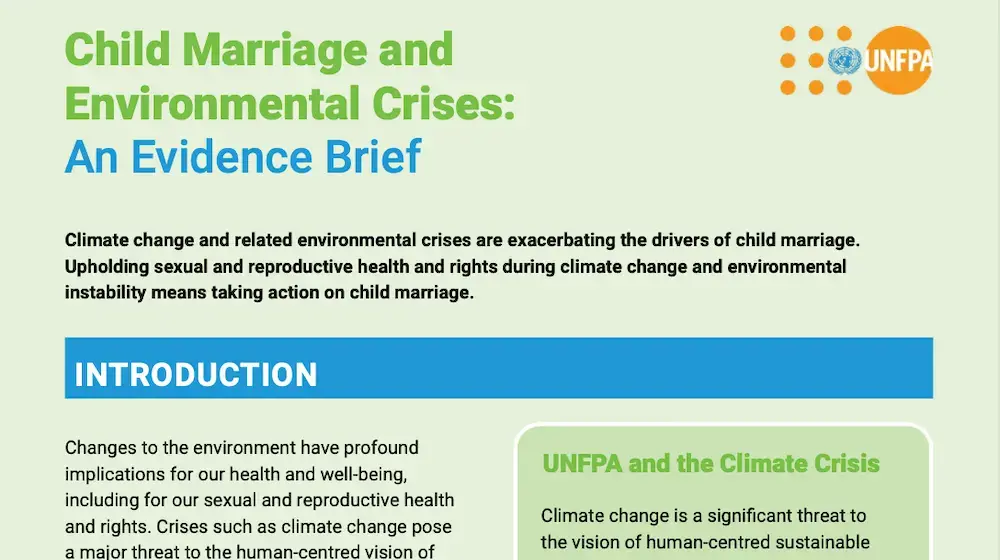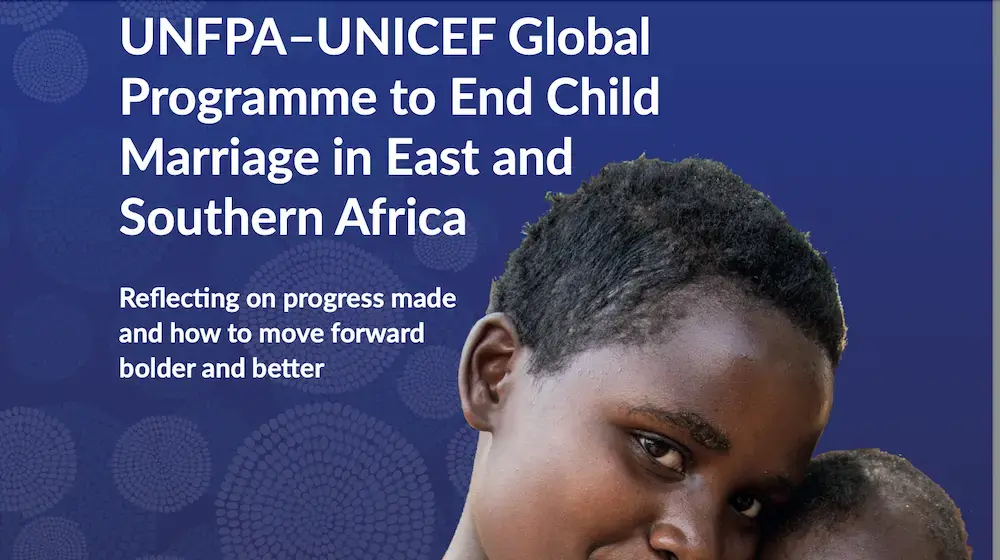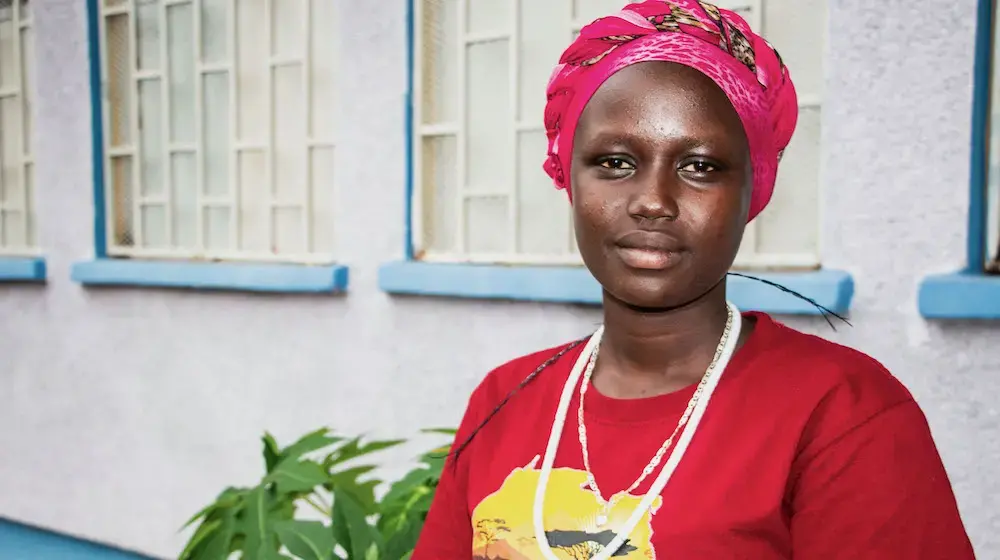ACCRA, Ghana—"It is everyone’s responsibility to ensure that wherever you are, you empower girls to speak out.
"Girls have to demand a space for their voices to be heard. Therefore, we urge African governments to support and uplift girls, and make a firm decision to end child marriage."
We urge African governments to support and uplift girls, and make a firm decision to end child marriage.
There are many ways to describe Natasha Mwansa, but shy and timid are not among them. The 17-year-old youth champion from Zambia is passionate about and relentless in her advocacy for women and girls – particularly against child marriage. And with good reason.
Every year, 12 million girls are married off before their 18th birthday worldwide. This number is unacceptable and keeping silent about it is worse, Natasha believes.

child marriage, as young people account for 60 per cent of the
population in sub-Saharan Africa. No decision about them must be
made without them. © UNFPA/Cleopatra Okumu
"I have been a child rights activist since 2014, when I was 12 years old," she said. "My interest in women’s and girls’ rights [began] at the first African Union Girls’ Summit in 2015, which I had the privilege to attend."
Her passionate call to action was made in her opening address at the Second AU Girls’ Summit in Accra, Ghana, in which she emphasized that girls cannot afford to wait for governments to give them a platform to talk about child marriage.
Youth participation was a high priority at this year’s summit, themed ‘Break the silence’, and so girls, boys, young women and young men took centre stage as session leads, panelists and presenters.
Natasha had the opportunity to play a prominent role. Child marriage featured high on her agenda.
Child marriage exacts a high toll in Africa
The cost of child marriage in Africa alone is $68 billion, according to a recent World Bank study. This figure refers to the loss in human capital wealth incurred by countries due to women marrying early.
Beyond this, girls who are married off as children are more likely to drop out of school and to encounter gender-based violence. They also typically lose their sense of self-worth and are not always given proper access to sexual and reproductive health services, including menstrual health and hygiene.
Inability to access menstrual health products may not be the only contributor to a family’s decision to give their girl child away in marriage, but it has far-reaching implications for girls and women. For instance, when a family suffers economic hardships, menstrual products are not a priority. Girls must do without them, resulting in ‘period poverty’.
Periods in many African countries are shrouded in silence and secrecy, a matter that concerns Natasha. "Menstrual health and hygiene are often overlooked in Africa. They are looked at as taboo and people are quite uncomfortable talking about them," she said.
However, early marriage is not a solution for period poverty. It only aggravates a girl’s situation if she does not have correct information on puberty and menstruation, leaving her unable to articulate her needs to her husband.
In [some] traditions, girls are not allowed to talk about it or even say that they are [having] their periods to the men they are married off to.
"In [some] traditions, girls are not allowed to talk about it or even say that they are [having] their periods to the men they are married off to," she said.
Break the silence to ensure reproductive well-being
Yet silence is the perfect breeding ground for taboos and stigmas in families, communities and countries. It also allows key decision-makers to continue sidelining the reproductive well-being of girls and women.
Often it is believed that by providing pads, tampons and menstrual cups, girls will have autonomy over their bodies and their health. But having access to menstrual products is only half the battle – the silence behind sexual and reproductive health must be overcome too.
How can this be done? By being bold, visible and vocal about these issues. And most importantly, by creating systems that are supportive, informative and action-oriented.
UNFPA-UNICEF programme to end child marriage empowers girls
One such system is the UNFPA-UNICEF Global Programme to Accelerate Action to End Child Marriage. Through the programme, girls and young women are given opportunities to discuss the challenges they face and how to access the right information and services on sexual and reproductive health, education, life skills and child marriage in an environment that is safe and confidential.
To date, the programme has given 74,000 girls in Mozambique access to safe spaces in their communities and referrals to adolescent-friendly health services. In Uganda, 27,000 adolescent girls have been equipped with life skills and financial training through school clubs and ‘Go back to School’ campaigns.
When a girl is empowered and given the right tools to make decisions about her body, her education and her finances, she is able to change the trajectory of her life – and the lives of her children. This is why ending child marriage for the African girl is a powerful action for the woman she will be tomorrow.
- Cleopatra Okumu





